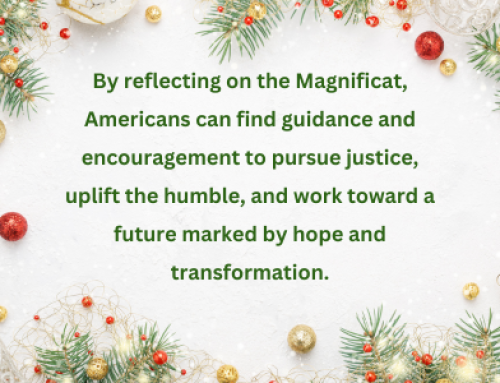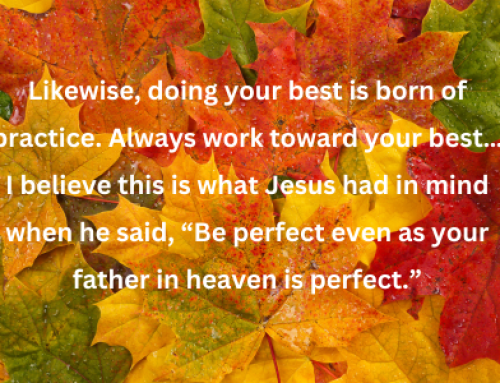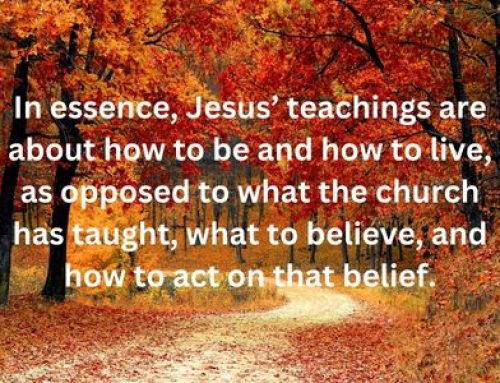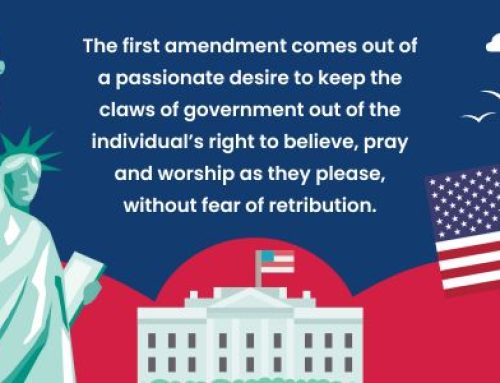I grew up in the Christian faith. My earliest memories go back to five years old and going to the Evangelical United Brethren Church in Pedee, Oregon. Pedee was a small farm and logging community about 15 miles southwest of Dallas, Oregon. Five miles north of Kings Valley.
At that time, the church was meeting in the four-room school house. First through eighth grade during the week, Sunday school and church on Sunday. When I was in my early teens, the EUB church finally built their own building which is still standing and holding services.
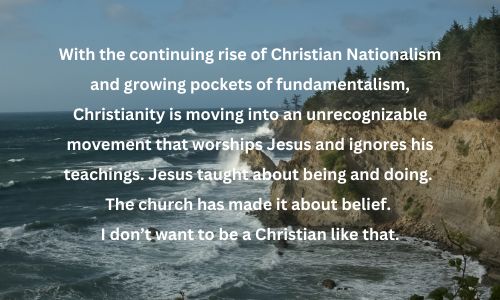 My first memory is of Vacation Bible School when I was five. We had a pastor that could do magic and his children’s sermons were always interesting, and if you will, magical!
My first memory is of Vacation Bible School when I was five. We had a pastor that could do magic and his children’s sermons were always interesting, and if you will, magical!
I remember the indoctrination of Bible stories, Jesus as God’s son, and Satan who was always out to get you. What a terrible thing to teach a child!
At any rate, I played that game through high school and tried to do so through college, but my mind was expanding in ways that called my Christian belief system into question.
During my sophomore year I finally said to myself, “Self, you need to reexamine your faith premises.” So I did. I started with the notion that I do believe in a God but I don’t know who or what that God is. God is, that’s all I know at this point. From there, I began my journey.
What I discovered was that there were two aspects of faith. Religion as one component that entails dogma and ritual. The other component was spirituality which entailed connection. I began to notice that the God experience was more than dogma and ritual. Jesus proclaimed that the Kingdom of God, the Spirit, the essence of whatever God is, is within us. It was not outside somewhere you could go to get it, but it is the very core of our being. Christianity, the church, proclaimed that you have to be saved from your sin, that was originally caused by Adam, by accepting Jesus into your heart, thereby you are saved. I went through that experience more than once.
It wasn’t until I was a senior in college that I began to experience the other aspect of spirituality. Hermann Hesse in his little book, Siddhartha, allowed me to experience an awakening (as Buddhists would say) and connect with the Divine Spirit within me.
I began to reread the gospels and began to understand that Jesus’ teachings were really all about an awakening. Nothing about being saved from an original sin.
So, my primary reason for abandoning my Christian heritage is because of the misappropriation of the teachings of Jesus. Was it intentional? I believe it was. Once the disciples decided that “The Way” had to have boundaries regarding belief, the spontaneity of Spirit was squelched, and the faith community became followers of an ideology that Jesus never intended.
In order to build the faith on a premise of belief, it became necessary to separate the wheat from the chaff so to speak. Who’s in, who’s out? By the fourth century the church, via the Council of Nicaea (325CE), formulated the acceptable dogma through creeds.
Jesus had no intention of starting a new religion, but to bring Judaism of age. Jesus said I came not to destroy the law, but fulfill it. The fulfillment notion was not honoring legal beliefs, many of which were cultural mores, but to live in the presence of compassion, love and justice. Let love be your guide. If loving your neighbor conflicts with the law, love your neighbor!
Of course, in Jewish tradition, your neighbor is another Jew. But Jesus was saying, your neighbor is whoever lives among you. All people, regardless of race, position and religious preference, were your neighbors. Out of that notion of course, came the call to love your enemies. I think for the disciples, except maybe one, that expectation was a bridge too far.
It wasn’t until the Apostle Paul that the “all in the family” notion became part of the new Christian sensitivity. We find out in the book of Acts that Peter also became a believer in the all in the family notion.
A couple paragraphs above, I mentioned that there was possibly one exception to the disciples believing the all in the family notion. Who was it? It would have to be Mary Magdalene. Reading the Gospel of Thomas and the Gospel of Mary (Magdalene) and even to some degree, John, one gets an esoteric writing of gnostic and Essene philosophy much different than the synoptic gospels. John has similar verbiage but nothing like Thomas and Mary’s gospel.
For instance, in Mary’s gospel there is a focus on inner spiritual transformation rather than external religious law. Her message emphasizes the journey of the soul, liberation from material attachments, and the pursuit of true understanding. This was meant as an all-inclusive teaching for ALL souls.
One of the most striking aspects of the Gospel of Mary Magdalene is its teaching about the nature of sin. Unlike mainstream Christian doctrine, which emphasizes repentance and forgiveness, Mary’s gospel presents a radically different viewpoint: sin is not an inherent stain upon humanity, but rather a misunderstanding or error in perception.
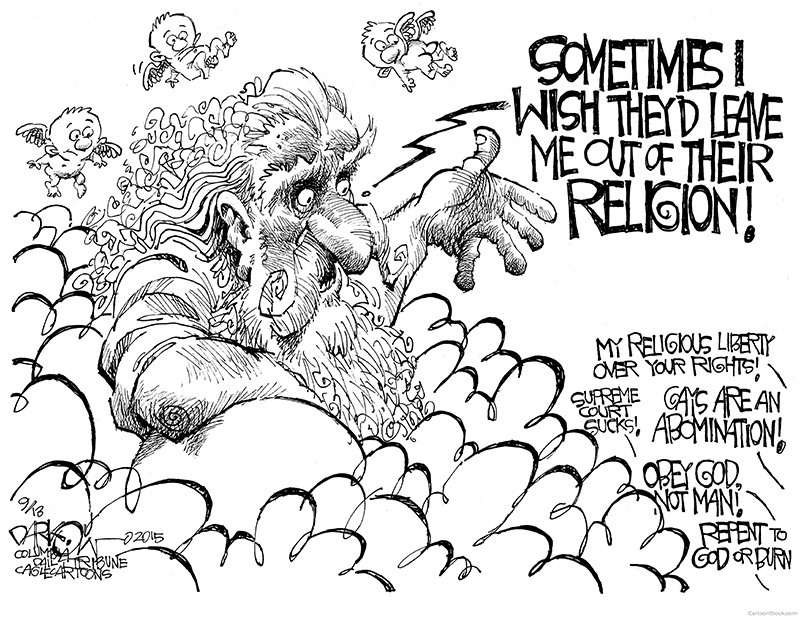 According to the text, Jesus tells the disciples that “there is no such thing as sin,” explaining that what we call sin is when individuals act in ignorance or when they become attached to the material world and its illusions. The gospel encourages followers to seek enlightenment and liberation through self-knowledge and spiritual awakening, rather than focusing on guilt or punishment.
According to the text, Jesus tells the disciples that “there is no such thing as sin,” explaining that what we call sin is when individuals act in ignorance or when they become attached to the material world and its illusions. The gospel encourages followers to seek enlightenment and liberation through self-knowledge and spiritual awakening, rather than focusing on guilt or punishment.
This teaching aligns with gnostic beliefs, which emphasize the importance of inner knowledge (gnosis) and the idea that salvation comes from transcending ignorance, not from ritual or external law. The Gospel of Mary Magdalene offers a profound reinterpretation of the Christian message, highlighting personal spiritual growth and the transformative power of knowledge. Its teaching that “there is no sin” invites readers to reconsider traditional views on morality and redemption, focusing more on reclaiming the divine spark within each person. You will find a similar narrative with the Thomas gospel.
By the middle of my senior year in college, I had awakened my inner being and felt called to some kind of pastoral ministry. Following my senior year, I enrolled at Berkeley Baptist Divinity School (now Berkeley School of Theology) and began a journey toward Christian ministry.
It wasn’t until my senior year in seminary that I really understood what my calling to ministry was about. I spent a year (10 months actually) between my middle and senior year in seminary involved in an internship at Good Shepherd Baptist Church in Lynnwood, WA. Good Shepherd became my mentor and teacher for the next 10 months. This experience consummated my call to ministry so by the time I got back to seminary for my senior year I knew what I needed from seminary classes to advance my skills in ministry.
One of the things I learned during my internship is that seminary really doesn’t teach you how to become a minister/pastor. Seminary gave me language and general skills about ministry. You don’t really understand what the job is about until you have served some time in the trenches actually DOING the job. I believe that is true with any professional job. That is why on-the-job training in any field is important.
As I continued to work with children, youth, families and senior adults, I began to have some clarity about my pastoral mission. It became clear that there needed to be something more than just dogma and ritual. I would not say that one cannot find spirituality in dogma and ritual. I’m sure it is possible; it just wasn’t possible for me.
So, I felt my calling to be, as Jesus proclaimed, “I have come not to destroy the law but to fulfill it.” I believe that the teachings of Jesus are like an onion, you have to keep peeling the outer layers away to get at the core. That’s true with ALL scripture regardless of the tradition. Dig underneath the surface to find the nugget of truth.
I wished I could say that I was successful with that approach, but I wasn’t. Not really. There always were those who would say, “well, my Bible says it this way and that’s how I choose to believe it.” Then of course, when teaching children I would get, “What on earth are you teaching these children? I want my child to learn the Bible.” I was naïve to think that I could make a difference with a new understanding. Church people are the hardest people to try and foster change. Their mantra is usually, if God said it then I believe it. Don’t confuse me with facts.
In the last 20 years, since retirement, I have engaged in personal study of spirituality through the many messengers of the various religions. It doesn’t seem to matter what the particular faith is; after you peel away the dogma and ritual at the core they are all pretty much saying the same thing, “Do unto others as you would have them do unto you…Love is the only way.”
With the continuing rise of Christian Nationalism and growing pockets of fundamentalism, Christianity is moving into an unrecognizable movement that worships Jesus and ignores his teachings. Jesus taught about being and doing, the church has made it about belief. I don’t want to be a Christian like that.
If truth be told, I have never overtly called myself a Christian but would always say when asked, “I’m in the process of becoming.”
If labels are important, I could be a Christian Buddhist, or a Bahai’, or even just a Buddhist. I still honor the teachings of Jesus, so maybe I could be a Jesusologist.
However, labels are not important to me. If it is that I need to be labeled something, then let it be this: My religion is Kindness; my dogma is Love, in the agape sense, and my practice is Micah 6:8: What does the Lord require of you, but to serve justice, love mercy and walk humbly with your God.
Let it be so…
